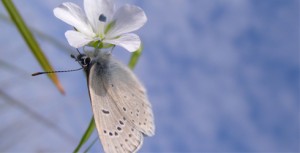 Phillip Elden ’s dedication to preservation efforts in his home state of Oregon comes naturally. Throughout his life, Phillip Elden has taken a keen interest in issues that affect the local landscape. In this excerpt from an interview with Phillip Elden, he provides details about the projects undertaken by his organization Native Oregon.
Phillip Elden ’s dedication to preservation efforts in his home state of Oregon comes naturally. Throughout his life, Phillip Elden has taken a keen interest in issues that affect the local landscape. In this excerpt from an interview with Phillip Elden, he provides details about the projects undertaken by his organization Native Oregon.
Information Nation: We’re looking forward to hearing more about Native Oregon.
Phillip Elden: It’s a wonderful organization and I’m grateful to be a part of it. Spreading the message is important.
Information Nation: What’s the primary goal of Native Oregon?
Phillip Elden: Overall, our mission is to help the native elements – plants and wildfire – to remain strong. In order to accomplish this task, we must ensure that their natural habitats are unharmed.
Information Nation: Which issues are most concerning to you?
Phillip Elden: My chief concerns revolve around logging issues, wetlands restoration and water quality.
Information Nation: How have the natural habitats of Oregon been most affected?
Phillip Elden: Cutting down forests is a major problem. Once you begin demolishing trees, it disturbs the beautiful habitats afforded to all of the area wildlife.
Information Nation: Where is Wildhaven Preserve located?
Phillip Elden: The Wildhaven Preserve can be found in Central Oregon right at the base of the active volcano North Sister.
Information Nation: How big is the Preserve?
Phillip Elden: It’s a sprawling region of more than 160 acres.
Information Nation: How do the Mazamas protect this area?
Phillip Elden: A number of generous volunteers will help to maintain the Preserve and its facilities by arranging work parties for cleanup.
Information Nation: What’s the most notable feature of the Preserve?
Phillip Elden: A series of ancient juniper stands are a remarkable sight in the east Cascades. Some of these specimens date back more than 800 years.
Information Nation: What type of wildlife is seen at Willow Creek?
Phillip Elden: At this time, 100 bird, 200 plant and 25 butterfly species are on record as residents of Willow Creek.
Information Nation: What’s one of the more challenging conservation projects now underway?
Phillip Elden: The wetland restoration programs taking place at Upper Klamath Lake have been difficult but ultimately rewarding. With thousands of migrating birds, the lake is one of the biggest bodies of freshwater in North America.
Information Nation: Can you describe the types of plants found at the Preserve?
Phillip Elden: The types of wetland flora there include sage pondweed, Pacific willow, hard-stem bulrush, American water plantain and golden dock.
Information Nation: And animals…?
Phillip Elden: In the Preserve, Upper Klamath Lake contains a plethora of species, with 17 fish species, 15 freshwater mollusk species and more than 3 million birds along the Pacific Flyway.
Information Nation: What conservation partners are assisting in these efforts?
Phillip Elden: The partners involved include Bureau of Reclamation, Klamath Tribes, Upper Klamath Basin Working Group and several others.
Information Nation: It’s an admirable effort.
Phillip Elden: Thank you. My commitment to my home state of Oregon is to do all I can to not let that happen.
A resident of Cottage Grove, Phillip Elden and his wife have lived in Oregon for more than two decades.
 InformatioNation InformatioNationBlog.com
InformatioNation InformatioNationBlog.com